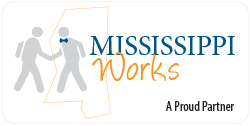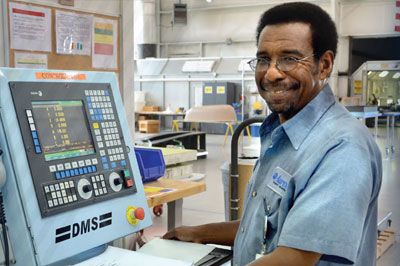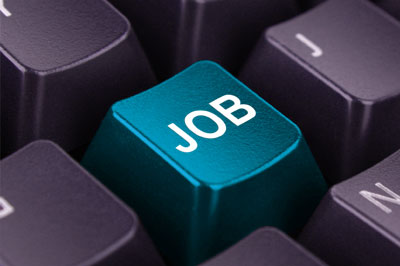How to Have a Productive Job Interview
When you are interviewing for a job, you must concentrate on and be well prepared for the task at hand: making a good impression, answering questions, maintaining eye contact with your potential employer, and paying attention throughout the entire interviewing process. In addition to these key components of a successful interview there are many dos and don’ts. Here are some of the top pieces of advice from professionals in the employment industry. If you follow these recommendations, you will be miles ahead of most of your competition when you interview with a potential employer.
Dress appropriately.
Dress as if you want the boss’ job. First impressions are very important, and image is everything. If you are dressed professionally it shows that you care about your image and that care will translate well into the company atmosphere. For more information on how to dress for your interview, click here.
Be on time.
In fact it’s best to be five to ten minutes early for your interview. Arriving late shows disrespect to the interviewer and indicates that you are an irresponsible person.
Don’t bring a drink with you.
If you have a bottle of water, cup of coffee or soft drink with you at the interview, you will likely be distracted by it and be tempted to fiddle with the cup, or even worse, spill it on the interviewer. If you need to have something to drink, do it before the interview.
Silence your phone.
Do not text, answer your phone or make a call during your interview. Doing so is rude and disruptive, and shows the employer that you don’t really care about getting the job. Resist the temptation to even look at your phone by putting it in your pocket or your bag before the interview.
Be ready to answer the inevitable question.
Practically every interviewer asks this question: "What do you know about this company?" Be sure to do your homework before the interview and know background information about the company before you come to the interview. Review it ahead of time, then print it out and read it over just before your interview to refresh your memory. Also check the company's LinkedIn page and Facebook page, if they have one.
Resume and job application need to match.
You may have already submitted a resume when you applied for the job, but you will probably be asked to fill out a job application at the interview. Make sure you know the information you will need to complete an application including dates of prior employment, graduation dates, and employer contact information. It can be helpful to bring a copy of your resume for yourself to refer to during your interview.
Don’t lose focus.
Make sure you are well-rested, alert and prepared for your interview.Getting distracted and missing a question looks bad on your part. If you zone out, your potential employer will wonder how you will be able to stay focused during a day on the job, if you can't even focus during one interview. Maintain eye contact, lean forward slightly when talking to your interviewer, and make an active effort to listen effectively.
Keep it to the point.
The interviewer probably does not want to hear your entire life story.Keep your answers succinct, to-the-point and focused and don't ramble - simply answer the question.
Also, don't get sidetracked and start talking about your personal life - your spouse, your home life or your children are not topics you should delve into. An interview is a professional situation - not a personal one.
Know what questions to expect.
In order to find out more about your potential as an employee, the interviewer will ask questions. You need to be prepared to answer frequently asked interview questions before you go to the interview. Don't let yourself be caught off guard.
| The top 10 questions asked by interviewers are: |
|---|
| What is your greatest strength? |
| What is your greatest weakness? |
| How do you handle stress and pressure? |
| Describe a difficult work situation and how you overcame it |
| How do you evaluate success? |
| Why are you leaving or have left your job? |
| Why do you want this job? |
| Why should we hire you? |
| What are your goals for the future? |
| Tell me about yourself. |
Be prepared to ask questions.
At the end of the interview, you will likely be asked if you have any questions for the interviewer.
| Be prepared with a list of a few questions to ask: |
|---|
| How would you describe the responsibilities of the position? |
| How would you describe a typical week/day in this position? |
| Is this a new position? If not, what did the previous employee go on to do? |
| What is the company's management style? |
| Who does this position report to? If I am offered the position, can I meet him/her? |
| How many people work in this office/department? |
| How much travel is expected? |
| Is relocation a possibility? |
| What is the typical work week? Is overtime expected? |
| What are the prospects for growth and advancement? |
| How does one advance in the company? |
| Are there any examples? |
| What do you like about working here? |
| What don't you like about working here and what would you change? |
| Would you like a list of references? |
| If I am extended a job offer, how soon would you like me to start? |
| What can I tell you about my qualifications? |
| When can I expect to hear from you? |
| Are there any other questions I can answer for you? |
Know the questions not to ask.
There are many questions that you should avoid asking in an interview., particularly the first interview or before you have been offered the job.
| Some of the most common ones include: |
|---|
| Can I do this job from home? |
| What does your company do? |
| When can I take time off for vacation? |
| Did I get the job? |
| What is the salary for this position? |
| How many hours will I be expected to work each work? Will I need to work on weekends? |
| How long would I have to wait to get promoted? |
| What type of health insurance does this company offer? |
Don't badmouth your former boss or coworkers. It really is a small world, and you don't know who your interviewer might know, including that boss who is an idiot. You also don't want the interviewer to think that you might speak that way about his or her company if you leave on terms that aren't the best.








